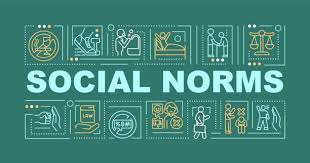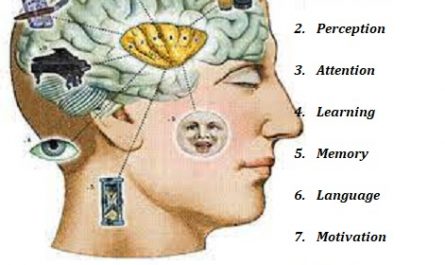SOCIAL NORMS
Social norms are a fundamental aspect of human society that shape behavior, attitudes, and beliefs. They are unwritten rules that guide individuals’ behavior within a specific social context. Social norms can vary across cultures, subcultures, and groups and can be influenced by various factors, including history, values, and beliefs. Understanding social norms is essential for effective communication, collaboration, and social cohesion. In this article, we will explore social norms in more detail, including their functions, types, and influences.
Functions of Social Norms
Social norms serve several critical functions within a society, including providing structure, encouraging conformity, regulating behavior, facilitating communication, and enforcing social control. These functions are outlined in more detail below:
Providing structure: Social norms provide structure and guidelines for behavior within a specific social context. They help individuals navigate social interactions and reduce uncertainty and ambiguity.
Encouraging conformity: Social norms exert pressure on individuals to conform to the attitudes and behaviors of their social group. Conformity helps to maintain social order and cohesion, and it can also help individuals fit in and be accepted by their peers.
Regulating behavior: Social norms help to regulate behavior by defining what is acceptable and unacceptable behavior within a particular social context. Norms can serve as a guide for individuals to behave in ways that are consistent with social expectations and avoid behaviors that are likely to lead to social disapproval.
Facilitating communication: Social norms provide a common language and understanding for individuals within a social group. They can help to facilitate communication and collaboration by providing a shared framework for interpreting and responding to social cues.
Enforcing social control: Social norms can also be used to enforce social control by punishing individuals who violate social norms through social sanctions, such as ridicule or exclusion.
Types of Social Norms
Social norms can be categorized into two types: descriptive norms and injunctive norms.
- Descriptive norms: Descriptive norms refer to the behavior that is commonly observed within a specific social context. For example, if most people in a particular community recycle, then recycling would be considered a descriptive norm in that context.
- Injunctive norms: Injunctive norms refer to the behavior that is perceived as appropriate or desirable within a specific social context. For example, if a sign says, “Please do not litter,” then not littering would be considered an injunctive norm in that context.
Influences on Social Norms
Social norms can be influenced by various factors, including history, values, beliefs, and media. Some of the key influences on social norms are outlined below:
History: Social norms can be shaped by historical events and cultural traditions. For example, cultural norms around family roles and gender have been influenced by historical events such as the Industrial Revolution and World War II.
Values and beliefs: Social norms are often influenced by the values and beliefs of a society or group. For example, norms around religious practices, such as prayer or dress, are influenced by religious beliefs.
Media: Social norms can also be influenced by media, including television, movies, and social media. Media can shape attitudes and behaviors by portraying certain behaviors or attitudes as desirable or undesirable.
Conclusion
Social norms are an essential aspect of human society that guides behavior, attitudes, and beliefs. They serve several critical functions, including providing structure, encouraging conformity, regulating behavior, facilitating communication, and enforcing social control. Understanding social norms is essential for effective communication, collaboration, and social cohesion. Social norms can be categorized into descriptive and injunctive norms and are influenced by various factors, including history, values, beliefs, and media. Overall, social norms play a crucial role in shaping human behavior and social interactions and are a critical area of study in social psychology.




